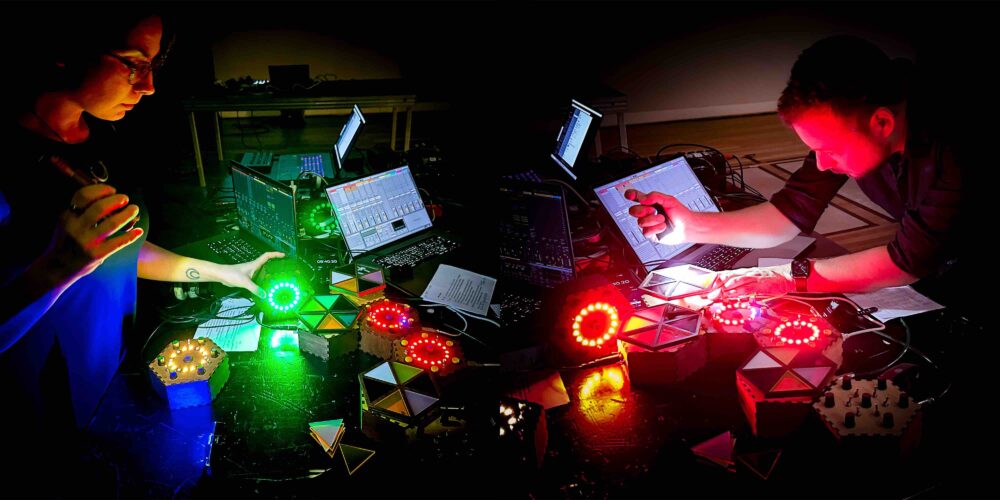Modular Mechanical Systems (MMS) is a study of DIY handmade electronic music systems that integrate kinetic movement and light sensors. MMS explores tactile feedback where gesture and light interaction create cyclical sonic patterns. Rotating frames with coloured acrylic panels that function as light filters are mounted on bearings/motors. Below the colour panels are photocells routed to bespoke circuitry based on the 40106 integrated circuit and three 6N138 optocouplers. The overarching soundworld is thus generated via standalone synthesisers that are tangible (performed via hand and motor) and highly responsive/performable via light. Controllers with accelerometers and programmable LEDs enhance the system through audio processing and control. MMS’s modular design and the integration of external lights as control sources offers limitless performance possibilities.
The research field is New Interfaces for Musical Expression and Tangible/Embedded Interaction. We build on the tradition of optical sound, including Derek Holzer’s Tonewheels (2007), where patterns on rotating platters directly drive synthesis. It is also inspired by Brion Gysin’s Dreamachine (1956) and the trance-inducing effects of stroboscopic light on audiences. The aim is to 1) explore light and sound feedback systems where the processes are apparent to the audience and 2) create an immersive audio-visual performance where visuals are not screen-based but encompass the performance area for fully immersive experiences.
MMS was peer reviewed by an international jury and selected/presented live-in-concert by the authors at Theater Kikker in Utrecht, NL in the opening concert for New Interfaces for Musical Expression (NIME) 2024. The work was also presented at a QCGU public concert, at QCAD as part of ISEA 2024 to an audience of 200, and presented at KEPK gallery in Brisbane.
